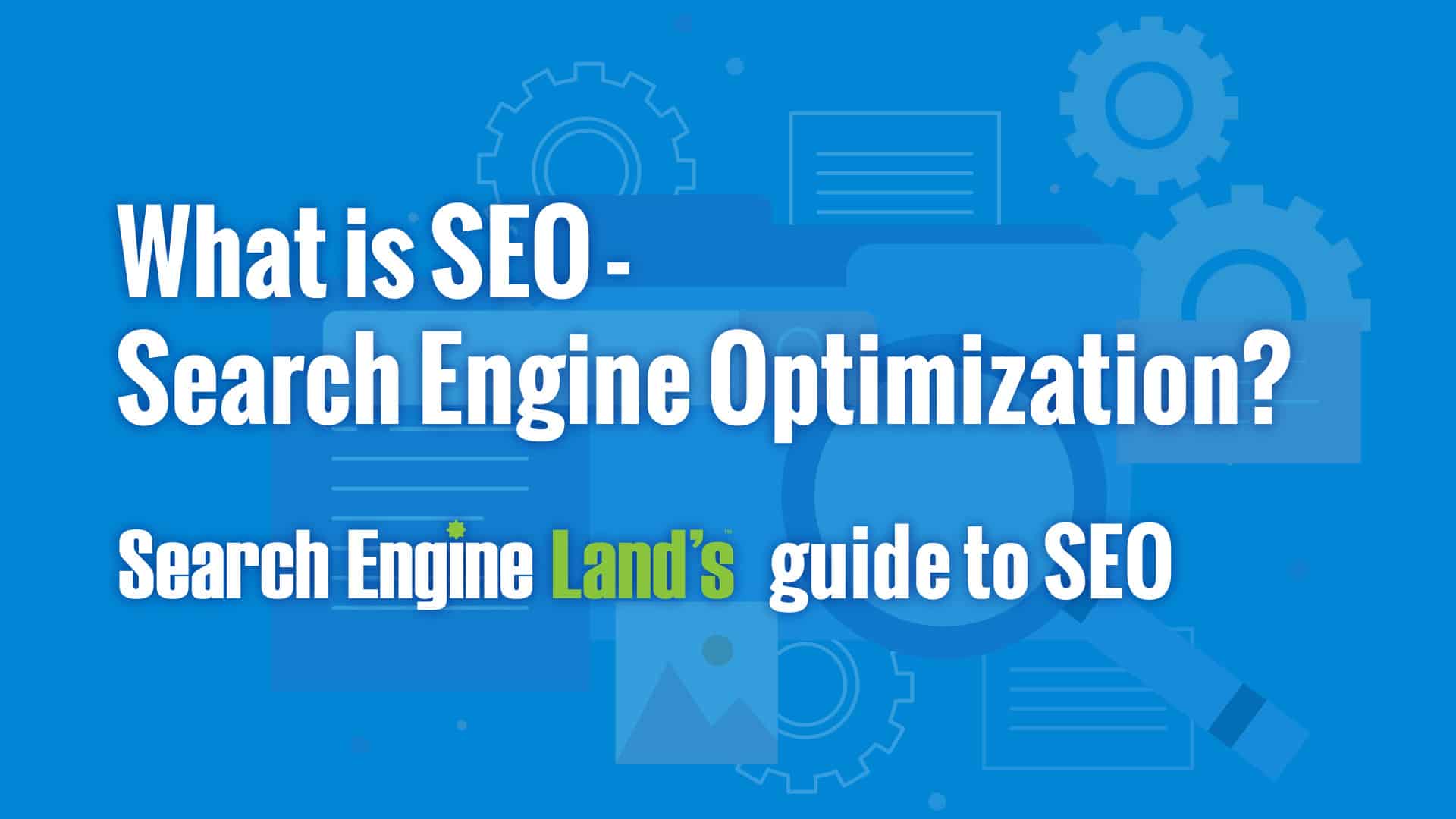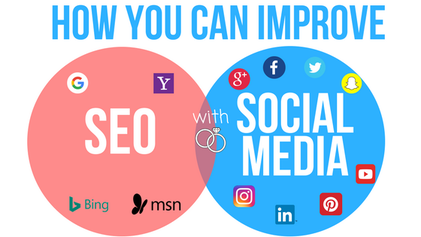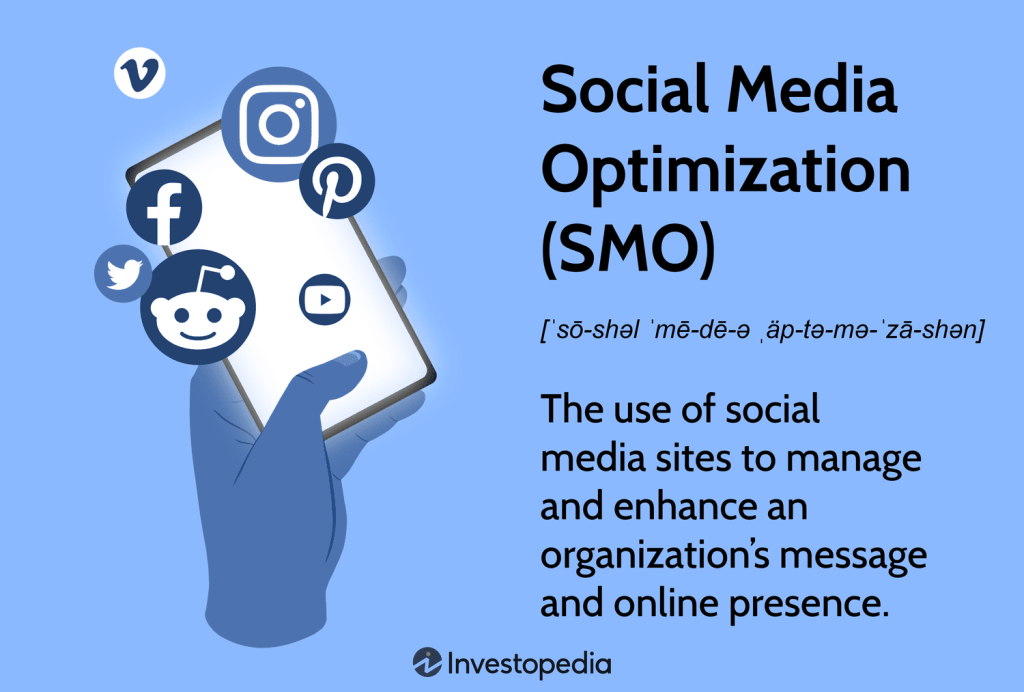Search Engine Optimization (SEO) is not social media. They are distinct but can complement each other.
SEO focuses on improving website visibility on search engines. Social media revolves around engaging users on social platforms. Both play crucial roles in digital marketing. While SEO aims to boost organic traffic through keyword optimization and content quality, social media marketing enhances brand awareness and user interaction.
Combining these strategies can maximize online reach and drive more targeted traffic to your site. Effective SEO helps your content rank higher, making it easier for users to find. Social media can amplify this by sharing and promoting content, fostering a broader audience. Understanding their synergy can significantly benefit your digital marketing efforts.
Seo And Social Media Synergy
SEO and social media are powerful tools. They can work together to boost your online presence. Combining them can create a synergy. This can lead to more traffic and engagement.
Defining Seo And Social Media
SEO stands for Search Engine Optimization. It involves optimizing your website to rank higher in search engine results. This can include using keywords, creating quality content, and building backlinks.
Social media refers to platforms like Facebook, Twitter, and Instagram. These platforms allow users to share content and engage with others. They help businesses reach a larger audience and increase brand awareness.
How They Complement Each Other
SEO and social media can complement each other in many ways. Here are some examples:
- Content Sharing: Social media helps share your optimized content. This can drive more traffic to your website.
- Backlinks: Social media can generate backlinks. This improves your website’s SEO.
- Engagement: Social media engagement signals can boost your SEO rankings.
Combining SEO and social media can maximize your online visibility. This synergy can lead to better results for your business.
| SEO | Social Media |
|---|---|
| Keywords | Content Sharing |
| Backlinks | Engagement |
| Quality Content | Brand Awareness |

Credit: rockcontent.com
Boosting Visibility
Boosting visibility on social media can transform your online presence. Combining SEO with social media efforts can enhance your reach. This fusion can drive more organic traffic and build a loyal audience. Let’s explore how SEO can boost your social media visibility.
Seo Techniques For Social Media
Using SEO techniques on social media platforms can improve your content’s reach. Here are a few strategies to consider:
- Keyword Optimization: Use relevant keywords in your social media posts.
- Hashtags: Incorporate trending hashtags to increase post visibility.
- Profile Optimization: Ensure your social media profiles are fully optimized.
- Quality Content: Share high-quality, engaging content regularly.
Increasing Organic Reach
Increasing organic reach on social media is crucial for long-term success. Focus on these strategies:
- Engage with your audience: Reply to comments and messages.
- Collaborate with influencers: Partner with influencers in your niche.
- Use visuals: Incorporate images and videos to attract attention.
- Post consistently: Maintain a regular posting schedule.
| SEO Technique | Benefit |
|---|---|
| Keyword Optimization | Improves searchability of posts |
| Hashtags | Increases post visibility |
| Profile Optimization | Enhances profile discoverability |
| Quality Content | Engages and retains audience |
By implementing these techniques, you can significantly boost your social media visibility and organic reach.
Content Optimization
Content Optimization is the backbone of successful SEO and social media strategies. It involves fine-tuning your content to be easily discoverable, engaging, and relevant. Let’s dive into how to achieve this through creating SEO-friendly content and the strategic use of keywords and hashtags.
Creating Seo-friendly Content
Creating SEO-friendly content means writing in a way that search engines understand. This involves using relevant keywords, maintaining readability, and ensuring your content is useful. Follow these steps:
- Research Keywords: Identify terms your audience searches for.
- Write Clear Headlines: Use keywords in your headlines.
- Structure Content: Use subheadings, bullet points, and short paragraphs.
- Use Images: Add relevant images with alt text.
Keywords And Hashtags
Keywords and hashtags are crucial for making your content discoverable. They help search engines and social media platforms understand your content. Here’s how to use them effectively:
| Aspect | Best Practices |
|---|---|
| Keywords |
|
| Hashtags |
|
Optimizing your content involves careful planning and strategic use of keywords and hashtags. By following these practices, you can improve your content’s visibility and engagement on search engines and social media.

Credit: searchengineland.com
User Engagement
User engagement is the heart of both SEO and social media. Engaging users helps to increase site traffic and improve visibility. Effective user engagement can boost your search rankings and social media presence.
Encouraging Interactions
User interactions are crucial. They signal to search engines that your content is valuable. Here are some ways to encourage interactions:
- Create compelling content that answers users’ questions.
- Use visuals such as images and videos to grab attention.
- Ask questions to prompt comments and shares.
- Respond to comments to show you care about user feedback.
Measuring Engagement Metrics
To improve, you must measure. Key metrics to track include:
| Metric | Description |
|---|---|
| Page Views | Count of times a page is viewed. |
| Average Session Duration | Average time users spend on your site. |
| Social Shares | Number of times content is shared on social media. |
| Comments | Total comments on your posts. |
Monitoring these metrics helps you understand user behavior. With this data, you can refine your strategies for better engagement.
Brand Reputation
Brand Reputation is the perception of your business in the eyes of the public. It influences customer trust and loyalty. A solid reputation sets you apart from competitors. Search Engine Optimization (SEO) plays a crucial role in shaping this perception. Let’s delve into how SEO helps in building and managing your brand’s reputation.
Building Trust Through Seo
SEO helps build trust by improving your website’s visibility on search engines. A high-ranking website appears more credible to users. When users find your site easily, they are more likely to trust your brand.
Consider the following tactics to enhance trust:
- Optimize your website for relevant keywords.
- Ensure your site loads quickly and is mobile-friendly.
- Publish high-quality, informative content regularly.
- Earn backlinks from reputable websites.
These steps improve your search engine ranking. They also show users that you are an authority in your field.
Managing Online Presence
Managing your online presence is key to maintaining a strong brand reputation. This involves monitoring what is said about your brand online and responding appropriately.
Here are some strategies to manage your online presence:
| Strategy | Description |
|---|---|
| Regular Monitoring | Use tools like Google Alerts to track mentions of your brand. |
| Engage with Customers | Respond to reviews and comments on social media and review sites. |
| Content Updates | Update outdated content to keep your site relevant. |
| Consistent Branding | Maintain a consistent brand voice and message across all platforms. |
Engaging with customers and updating content helps maintain a positive image. Regular monitoring ensures you catch issues early and address them swiftly.
Analytics And Insights
Understanding the performance of your SEO and social media efforts is crucial. Analytics and insights provide valuable data that helps improve strategies. This data can show what’s working and what needs change.
Tracking Performance
Tracking performance involves monitoring key metrics. These metrics include website traffic, bounce rate, and conversion rates.
| Metric | Description |
|---|---|
| Website Traffic | Measures the number of visitors to your site. |
| Bounce Rate | Percentage of visitors who leave without interacting. |
| Conversion Rates | Percentage of visitors who complete a desired action. |
Google Analytics is a powerful tool for tracking these metrics. Social media platforms also provide insights. Facebook, Twitter, and Instagram offer detailed analytics. These analytics help gauge the effectiveness of posts and campaigns.
Adapting Strategies
Analytics help you adapt your strategies. If a campaign performs poorly, you can make changes.
- Adjust your keywords for better SEO.
- Change the timing of your social media posts.
- Update your content to be more engaging.
A/B testing is a useful method. Test different versions of a webpage or post. See which version performs better. Use the data to make informed decisions.
Regularly review your analytics. Use the insights to refine your strategies. This ensures continuous improvement and better results.
Future Trends
The world of Search Engine Optimization (SEO) and social media is rapidly evolving. Keeping up with future trends is vital for digital marketers. These trends shape how businesses reach their audience. They also impact how effectively they engage with them.
Emerging Seo Techniques
New SEO techniques are coming up every day. Here are some of the most exciting ones:
- Voice Search Optimization: More people use voice assistants like Siri and Alexa. Optimize your content for voice search to stay ahead.
- Artificial Intelligence (AI): AI is changing SEO. Tools like Google’s RankBrain help search engines understand user intent.
- Mobile-First Indexing: Google prioritizes mobile-friendly websites. Make sure your website looks good on mobile devices.
- Video Content: Video content is king. Optimize your videos for SEO to attract more viewers.
Evolving Social Media Platforms
Social media platforms are constantly changing. Here are some trends to watch:
- Short-Form Video Content: Platforms like TikTok and Instagram Reels are booming. Create short, engaging videos to capture attention.
- Social Commerce: More people shop directly from social media. Use social commerce features to boost sales.
- Augmented Reality (AR): AR is enhancing user experience on platforms like Snapchat and Instagram. Use AR features to make your content more interactive.
- Ephemeral Content: Stories on Instagram and Snapchat disappear after 24 hours. This creates a sense of urgency for users to view them.
By understanding these trends, businesses can better integrate SEO and social media strategies. This helps them stay relevant in a fast-paced digital world.

Credit: onlinegrowthsystems.com
Frequently Asked Questions
Is Search Engine Optimization Part Of Social Media?
No, search engine optimization (SEO) and social media are separate. SEO focuses on search engines, while social media targets social platforms. Both can complement each other.
Does Social Media Count For Seo?
Yes, social media impacts SEO. It drives traffic, increases brand visibility, and can boost search rankings through engagement and backlinks.
What Is The Difference Between Social Media And Seo?
Social media focuses on real-time engagement and content sharing. SEO optimizes website content to rank higher on search engines.
Is Google Search Engine A Social Media?
No, Google is a search engine, not a social media platform. It helps users find information online. Social media sites like Facebook and Twitter focus on social interaction.
Is Seo Part Of Social Media Marketing?
No, SEO focuses on improving website visibility on search engines, while social media marketing targets engagement on social platforms.
Conclusion
SEO and social media are distinct but interconnected. Both play crucial roles in digital marketing strategies. Combining them can amplify your online presence. Leverage SEO for organic search traffic and social media for engagement. Together, they create a powerful synergy, driving your brand’s visibility and success.


